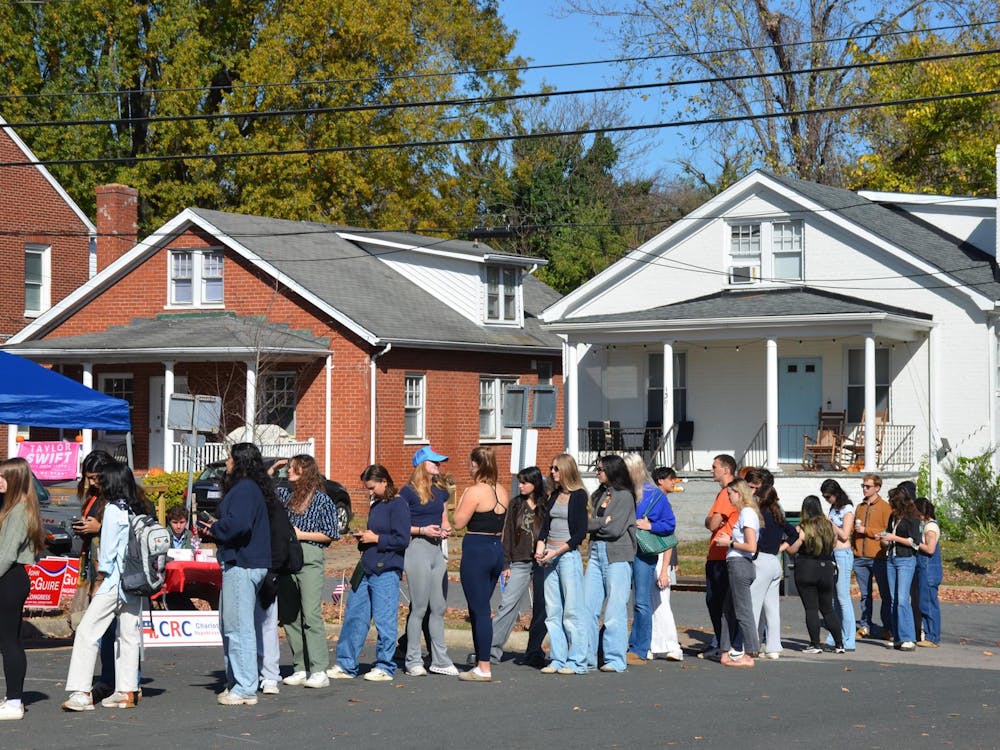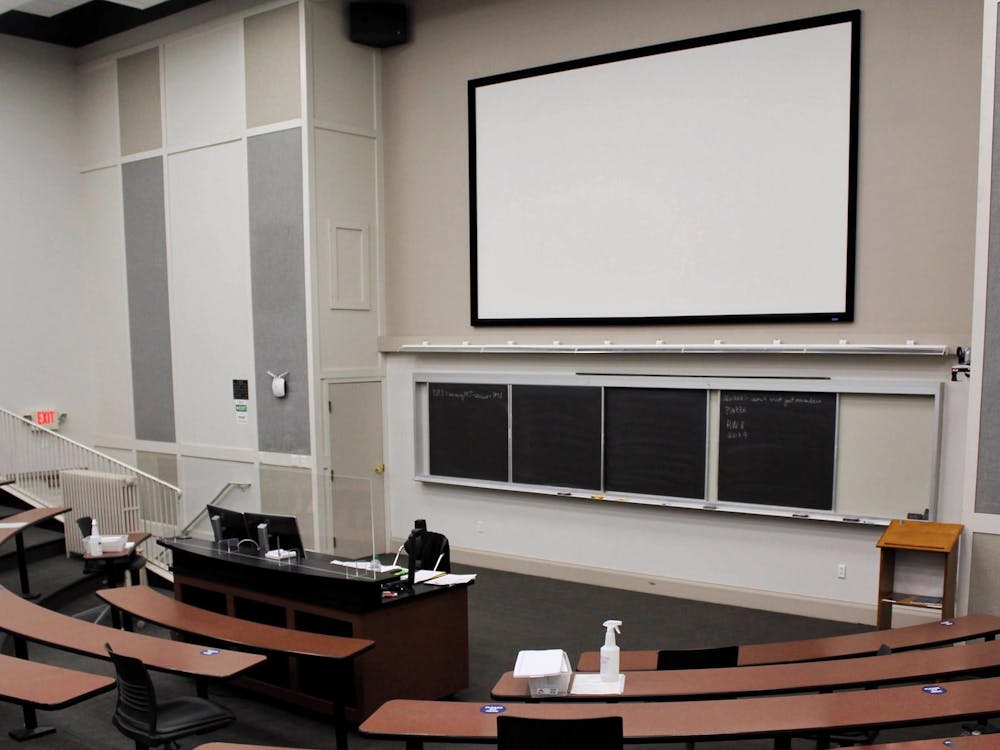I can’t tell you how many times I’ve heard the question, “If we can expel people for cheating on a test, why can’t we expel someone for rape?” As someone who has worked on sexual assault prevention and adjudication during her time at U.Va. and as a survivor myself, I feel the deep frustration the apparent paradox generates. And yet, I’ve come to understand that the seemingly obvious answer—expel them, duh—is constrained by a whole host of federal legislation and precedent. It’s not about U.Va. It’s about our national system. Many of us live in the glorified legal fiction of “Law & Order: SVU.” The realities are far more complex, and sadly, far more bleak. I want to take this opportunity to clarify the frustration with a cursory legal overview of the problems institutions like U.Va. face when confronting the conflict between Title IX and due process.
First, let’s start with a definition of terms. Title IX, a piece of landmark legislation for women’s equality (too often associated solely with sports), stipulates that “discrimination includes conduct which denies or limits a student’s ability to benefit from a school’s programs or activities on the basis of that student’s sex.” Since its passage in 1972, the courts have recognized if sexual harassment involves conduct that is so severe or pervasive that it creates a “hostile learning environment,” it limits a student’s ability to fully benefit from his or her education. Under Title IX, which federally mandates the protection of the victimized student, sexual harassment conduct includes any form of sexual violence — e.g. rape — and mandates that it be investigated and adjudicated.
Due process, on the other hand, is our familiar 14th Amendment right. As Lavinia Weizel lays out in her 2012 article, in the 1974 Supreme Court case Goss v. Lopez, the Court ruled that “under the Due Process Clause of the Fourteenth Amendment, primary and secondary school students have both a property and a liberty interest in their education” because schools receiving federal monies are considered to be state actors. As far as implementation goes, the 1961 Supreme Court case Dixon v. Alabama State Board of Education defined the minimum procedural safeguards schools must use. The basic guidelines made are as follows: 1) inform students of charges; 2) inform students of the evidence supporting these charges; 3) give students the chance to speak in their own defense and 4) sanction students based only on “substantial evidence.”
In an attempt to balance due process and Title IX when handling campus sexual-assault cases, the Supreme Court designed a due process “balancing test” in the 1976 case Matthews v. Eldridge. This test weighs 1) the individual private interest at stake and 2) the risk of erroneous deprivation of that private interest against the social costs and the administrative burdens that would arise from implementation of more adjudicatory procedure.
It is important to note that the Matthews balance considers only the individual interests of the accused student — even though a victimized student also has serious private interests at stake in his or her education. A victim of sexual assault may be significantly limited in his or her ability to function at the school if the perpetrator remains on campus. Victims cannot raise due process claims on those grounds (which fall under property interests in education). Title IX guarantees that the school will investigate and adjudicate, but a victim has, on the federal level, no real legal standing for an appeal on due process grounds. If her rapist is let free, she can appeal the fairness of the trial itself only. She cannot appeal that her right to an education has been violated as the perpetrator can.
The cases heard on college campuses are often hearsay “he said, she said”-type cases that do not have an abundance of physical evidence. Self-blame among victims also typically delays reporting to the degree that it may undermine any potential evidence and/or the victim’s credibility. Rapes generally occur in private, and in the context of alcohol consumption, so there will be either no witnesses or witnesses with legally dubitable memory as testimony. As such, these cases are a landmine of due process concerns — and any appellate lawyer’s dream. The college disciplinary process, then, is often forced to pick between favoring Title IX or due process. Colleges are pushed in the direction of prioritizing procedural justice (the fairness of the proceedings) over substantive justice (the appropriateness of the penalty) because when procedural justice is strong, then at the very least, whatever disciplinary finding the board makes might stick and provide some modicum of justice for the survivor.
When caught between demands of due process and Title IX, schools like U.Va. are forced to make procedural and disciplinary decisions that they hope will stand on appeal. For example, the Sexual Misconduct Board that adjudicates trials, made up of students and faculty, has to exclude peer sexual assault educators because an appeal is easily won on grounds of juridical bias. The disciplinary decision to expel, moreover, has to be approached with great caution, because given the ease of appeal on due process grounds and the low (albeit mandated) standard of proof, there is a high likelihood that an expelled rapist will appeal, win that appeal, and be right back on Grounds with no chance at retrial (thanks to double jeopardy). Our administration and our adjudication system aren’t trying to dismiss sexual assault; they’re trying to adjudicate it within the tight binds of a larger legal tension.
The University is — and I do not exaggerate — an outstanding institution in terms of our degree of conformity with the stipulations of Title IX and the letter of our policy. This does not mean, however, that U.Va. is then exempt from the fraught complications of due process. As much as I want and believe that rape should be a single-sanction offense, it is legally untenable and impossible given the state of American justice today, which involves part of our very Constitution. To make rape a single-sanction offense involves either raising the standard of proof to a level that violates Title IX or sacrificing the viability of countless cases by mirroring the justice system, which only successfully prosecutes 4 percent of rapes every year (most of which, I will add, are stranger rapes with DNA evidence).
So this begs the question — how does it get better? Well, while students like myself can work to make procedural reforms and minor policy tweaks, ultimately, it’s up to us to change the society around the system. When do we start believing victims? When do we stop asking how much she drank? When do we stop insinuating that she’s lying? When do we stop commenting on how sad the loss of a boy’s promising future is? Because when we stop doing that, we’ll stop having these complications. Justice is a fundamentally human institution. So when you’ve reformed the institution to the letter, it’s the humans who need to change.
Emily Renda is a fourth-year College student and the chair of the Sexual Assault Leadership Council.




